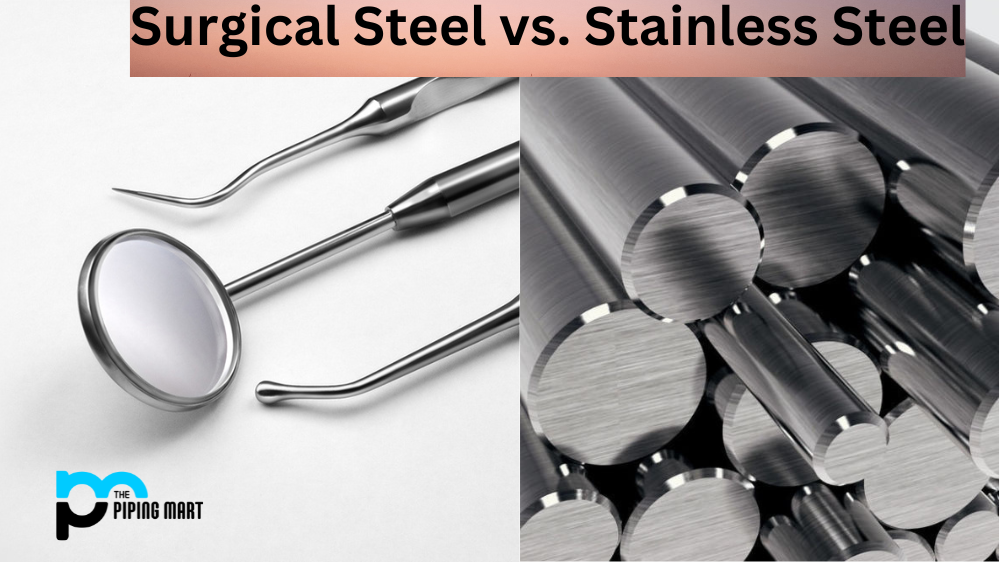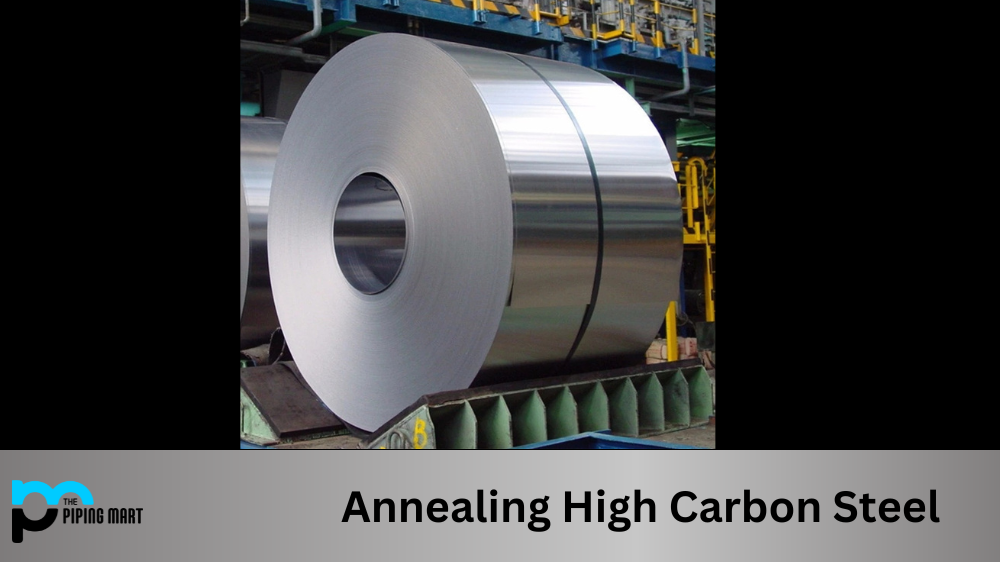Titanium alloys are a popular choice for many industrial applications due to their strength, lightweight, and corrosion resistance. They can be used in everything from aerospace components to medical implants. But what exactly is a titanium alloy, and what different types are available? Let’s take a look.
What is Titanium Alloy ?
Titanium alloy is a blend of titanium and different metals like aluminum, vanadium, or iron that are mixed to achieve the desired material properties for various applications. It is used in aerospace, medical implantation, and even sports equipment thanks to its high strength-to-weight ratio and corrosion resistance. Known for its durability and lightness, titanium alloy has become an essential material in modern-day manufacturing and engineering. Titanium alloys are created when two or more elements are combined with titanium to enhance their properties. Commonly added elements include aluminum, tin, vanadium, molybdenum, and zirconium. The combination of these elements creates a variety of different titanium alloys that can be used for various applications, depending on the desired properties.
Composition of Titanium Alloy
Titanium alloys are a group of metals that possess unique characteristics, making them highly sought after in the engineering and manufacturing industries. Composed of a blend of titanium and other metals such as aluminum, nickel, and vanadium, each alloy varies in its properties and performance. Due to their strength, corrosion resistance, and lightweight construction, titanium alloys are used in a variety of applications ranging from military aircraft and spacecraft to biomedical implants.
Properties of Titanium Alloy
Titanium alloy is well-known for its distinct properties that make it stand out among other materials. It has a high strength-to-weight ratio, excellent corrosion resistance, and outstanding biocompatibility, making it an ideal choice for a variety of applications. Another unique property of titanium alloy is its ability to withstand extreme temperatures without degradation. These properties make it a popular choice in industries such as aerospace, medical, and automotive manufacturing. With its exceptional characteristics, titanium alloy is truly a remarkable material that continues to revolutionize different fields of science and technology.
Uses of Titanium Alloy
Titanium alloy is a lightweight yet incredibly strong material that has a wide range of uses. It is commonly used in aerospace and automotive industries, where its strength-to-weight ratio makes it an ideal choice for high-performance components such as engine parts and airframes. Additionally, it is used in medical implants and prosthetics due to its biocompatibility and resistance to corrosion, and in sporting equipment such as golf clubs and bicycles for its durability and flexibility. Titanium alloy is truly a versatile material with countless exciting uses.
Types of Titanium Alloy
Ti 6AL 4V (or Grade 5)
The most common type of titanium alloy is called 6AL-4V (or alloy Grade 5), which is composed of 6% aluminum and 4% vanadium. This alloy offers excellent strength and durability while still being relatively lightweight. It is often used in the aerospace industry due to its high strength-to-weight ratio and resistance to corrosion. Additionally, it has good weldability and can withstand extreme temperatures without becoming brittle or losing its shape.
Ti 6al 2sn 4zr 2mo(or Grade 9)
Another popular type of titanium alloy is 6al 2sn 4zr 2mo (or Grade 9). This alloy contains 2% aluminum, 2% tin, 4% zirconium, and 2% molybdenum in addition to the base titanium element. It boasts even higher levels of strength than 6AL-4V while still maintaining good ductility at low temperatures, making it an ideal choice for cryogenic applications such as liquid natural gas tanks or cryogenic tanks on rockets/spacecraft. It also has excellent fatigue resistance at elevated temperatures and superior corrosion properties compared to other alloys. Moreover, it can be cold-worked much more easily than 6AL-4V for greater design flexibility.
Alpha Alloys
Alpha Alloys are titanium based alloys that contain at least 6% aluminum and 4% vanadium. These types of titanium are mostly used in the aerospace industry due to their superior strength and light weight, making them perfect for aircraft engines. They also possess excellent corrosion resistance in airframe components as well as heat resistant properties. Common applications for alpha alloy include gas turbines blades, fasteners, biomedical implants, chemical processing equipment and cryogenic containers.
Alpha-Beta Alloys
Alpha-Beta Alloys boast high strength with good ductility compared to the Alpha alloy family. The added benefit of Alpha-Beta is its low thermal expansion coefficient and excellent weldability – making it ideal for more complex structures requiring welding or forming operations such as compressor discs and rings or other semi-structural components found in turbine engines on commercial aircrafts . Common applications for this type of alloy include medical implants due to its biocompatibility properties; ship propeller shafting; naval vessels; fossil fuel power plants; nuclear reactors; sporting goods like bicycles frames or golf clubs ; oil rigs (high oxidation environment); remote sensing platforms (drones) ; space exploration vehicles ; ballistic armor ; bridges & buildings exposed to harsh weather conditions .
Beta Alloys
Beta Alloys consist mainly of Titanium plus a Molybdenum content higher than those found in Alpha/Beta grade material (around 2%). With its extraordinary combination of temperature strength , good formability , poor solderability but great weldability – Beta is one if not the most versatile type when it comes to complex systems operation under extreme temperatures ranges while holding up firm dimensional stability requirements such as automotive turbocharger parts , helicopter transmission cases , generally any system featuring extreme hot/cold cycles over extensive periods can greatly benefit from applying this type right away without fearing exposure damage stress factors . Additionally they’re widely applied within industries related with major oil fields thanks their extraordinary toughness which allows them to withstand extremely abrasive environments along with providing high resistance against crevice corrosion attack seen frequently on coastal service operations .
Conclusion:
Titanium alloys are incredibly strong yet lightweight materials that offer excellent corrosion resistance and weldability, making them ideal for use in a wide range of industries, from aerospace engineering to medical implants. The two most common types of titanium alloys are 6AL-4V (Grade 5) and Ti-6AL-2Sn-4Zr-2Mo (Grade 9 alloy). Each has its own unique set of properties that makes it best suited for specific applications, so it’s important to choose the right one for your needs! Whether you’re looking for increased strength or better cryogenic performance, there’s sure to be a titanium alloy that meets your requirements perfectly!

Pipingmart is a B2B portal that specializes in metal, industrial and piping items. Additionally, we share the latest information and information about materials, products and various types of grades to assist businesses that are involved in this business.




